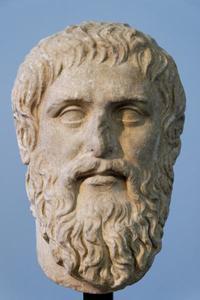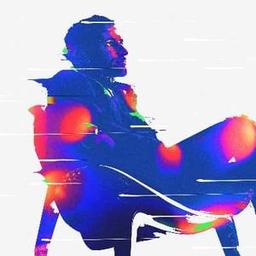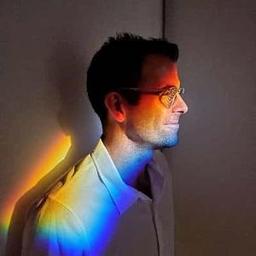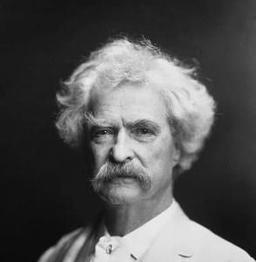31 Quotes
"What is remarkable here is not that a search like this didn't quite work the first time, but the expectation that it should have."
— Tom Vanderbilt
In-depth: The future of search"Without context, we are stuck in what futurist Paul Saffo calls the ""Boolean prison of search""."
— Tom Vanderbilt
In-depth: The future of search"As John Battelle, author of The Search, says, ""Search is now more than a web destination and a few words plugged into a box."
— Tom Vanderbilt
In-depth: The future of search"Search has become embedded into everything, and has reached well beyond its web-based roots."
— Tom Vanderbilt
In-depth: The future of search"We once used search engines to look for information, now we use search to find us -- what once seemed transactional now seems an extension of ourselves."
— Tom Vanderbilt
In-depth: The future of search"As a scientist I can say 'understand' is a poorly understood concept,"" says Singhal. ""Even how you and I understand something is not well understood."""
— Tom Vanderbilt
In-depth: The future of search"Google will understand that these things are not simply matching sequences but that they are ""things"" with an internet life and place and history of their own"
— Tom Vanderbilt
In-depth: The future of search"And it will do so via increasingly sophisticated methods: ""be it understanding your speech, your gestures, or what you are looking at,"" says Singhal."
— Tom Vanderbilt
In-depth: The future of search"""We're in a world where almost everything is at your fingertips,"" says Giannandrea. ""But how do you go through it all?"""
— Tom Vanderbilt
In-depth: The future of search"The work of the semantic graph is to make the connections that traditional search might overlook."
— Tom Vanderbilt
In-depth: The future of search"""You'd be surprised at how many times there's a serendipitous link between two different things,"""
— Tom Vanderbilt
In-depth: The future of search"As much as trying to know everything, the Knowledge Graph is about trying to work out what you want to know, parsing the disambiguation (""did you mean?"") and filtering noise."
— Tom Vanderbilt
In-depth: The future of search"With the Knowledge Graph, Google has taken a different step towards the future of search: providing answers, not links."
— Tom Vanderbilt
In-depth: The future of search"As Greg Linden, who invented Amazon's recommendation engines and founded Findory notes, says, ""I don't think we'll ever get to the semantic web as it was envisioned -- detailed labelling and descriptions of web pages by humans -- but we are getting closer to its goal: deep descriptions and understanding of the web, through artificial intelligence and natural language understanding."""
— Tom Vanderbilt
In-depth: The future of search"These are the pillars of Google's future of search: the vast knowledge of user behaviour and intent it already has and is compiling every second; the Knowledge Graph, in which strings become things; and Google's advances in artificial intelligence."
— Tom Vanderbilt
In-depth: The future of search"""A link is not at all an answer,"" says Oren Etzioni, professor of computer science at the University of Washington and founder of Decide, a search engine that analyses optimal purchase options and timing."
— Tom Vanderbilt
In-depth: The future of search"""We've been conditioned by years of using Google to think it is."" A pizza inquiry, he suggests, ""is treated by a search engine as information retrieval."
— Tom Vanderbilt
In-depth: The future of search"Singhal believes that search is best done on a mobile device"
— Tom Vanderbilt
In-depth: The future of search"""a process running by [our] side. The perfect assistant."""
— Tom Vanderbilt
In-depth: The future of search"Dyson notes that Bill Gates told her: ""the future of search is verbs."""
— Tom Vanderbilt
In-depth: The future of search"People, the argument goes, want search to do things, not just suggest things."
— Tom Vanderbilt
In-depth: The future of search"Reuniting our digital lives into one platform that is searchable is, to me, the largest problem we face today."""
— Tom Vanderbilt
In-depth: The future of search"""You can call it whatever you want. This is what the human brain would like to have by its side, when you're seeking information, or sometimes information comes to you without your seeking it."""
— Tom Vanderbilt
In-depth: The future of search"Like many search engines, Google uses ""spiders"", robot programs that scan new and updated pages and index every word (except ""a"", ""an"" and ""the"")."
— Tom Vanderbilt
In-depth: The future of search"The index doesn't contain just keywords, but also metadata: information on whether the keywords were capitalised, their font size, and where on the page they were found (in the title, subtitle or lower down), in order to help rank the importance of the page."
— Tom Vanderbilt
In-depth: The future of search"It rates a page's importance based on the number and reputation of links that pointed to them."
— Tom Vanderbilt
In-depth: The future of search"The algorithm uses over 200 signals to refine a search query. These include a website's PageRank, a searcher's geographic location, which links they usually click, how they modify their search queries when they are unsatisfied and their search history."
— Tom Vanderbilt
In-depth: The future of searchExplore More Quotes 📚
Want to Save Quotes?
Glasp is a social web highlighter that people can highlight and organize quotes and thoughts from the web, and access other like-minded people’s learning.

















